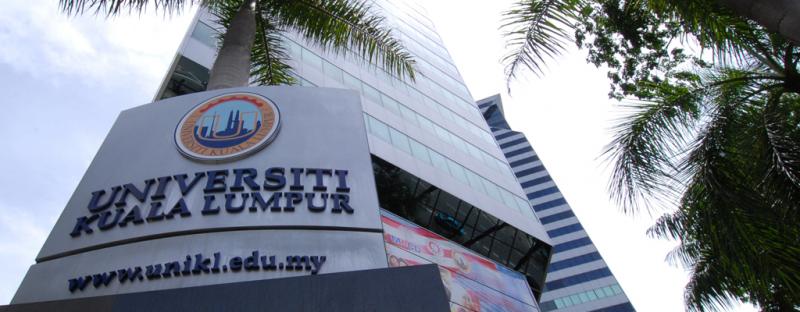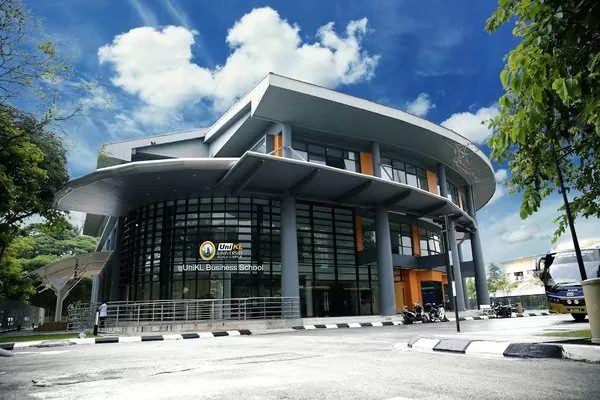Overview
This is a unique master programme that helps working adult continues their education to advance their career. It is focuses on system and networking and also software engineering which is highly demanded in today technology. Students only need to complete 5 courseworks and a dissertation to graduate which will take a maximum of two years with affordable fees. Taught by experienced lecturers with industrial background will equip the graduates with the required knowledge.
Programme Educational Objectives (PEOs)
- PEO1 :To produce graduates who are knowledgeable, competent and innovative which will contribute towards the requirement of the human capital in computer science related industries.
- PEO2 :To produce graduates who have effective leadership and teamwork skills as well as verbal, non-verbal and interpersonal communication skills to support their roles in industry.
- PEO3 :To produce graduates who are committed to the importance of lifelong learning and continuous improvement.
- PEO4 :To produces graduates who practice professionalism with ethics and social responsibility.
- PEO5 :To produce graduates who are capable to participate in business and technopreneurial activities of the industries
Programme Learning Outcomes (PLOs)
- PLO1 : Apply and integrate knowledge concerning current research issue in computing and produce work that is at the forefront of development of the domain of computer science.
- PLO2 : Evaluate and analyse computing solutions in term of their usability, efficiency and effectiveness.
- PLO3 : Develop computing solutions and use necessary tools to analyse their performance to meet specified needs with appropriate consideration for public health and safety, cultural, societal and environmental considerations.
- PLO4 : Apply existing techniques of research and enquiry to acquire, interpret and extend, knowledge in computing.
- PLO5 : Communicate and function effectively as an individual, and as a team member or leader, on broadly defined computing activities.
- PLO6 : Prepare, publish and present technical materials to a diverse audience with understanding of management, business practices, and technopreneurial competencies.
- PLO7 : Display behaviour that is consistent with codes of professional ethics and responsibility.
Admission
Entry Requirement
Entry requirements were following minimum standard as in Programme Standard Computing version 3 updated Jan 2024 are as follows:
-
- A Bachelor’s degree (Level 6, MQF) in Computing or related fields with a minimum CGPA of 2.75 or equivalent, as accepted by the HEP Senate; OR
- *A Bachelor’s degree (Level 6, MQF) in Computing or related fields with a minimum CGPA of 2.00 and not meeting a CGPA of 2.75 can be accepted subject to a thorough rigorous assessment as determined by the HEP; OR
- *A Bachelor’s degree (Level 6, MQF) in Non-Computing field with a minimum CGPA of 2.50 can be accepted subject to a thorough rigorous assessment as determined by the HEP to identify the appropriate prerequisite courses that equivalent to their working experience in the Computing or related fields; OR
- *A Bachelor’s degree (Level 6, MQF) in Non-Computing fields with a minimum CGPA of 2.50 can be accepted subject to appropriate prerequisite courses; OR
- *Other qualifications equivalent to a Bachelor’s degree (Level 6, MQF) in Computing or related fields recognised by the Government of Malaysian must fulfill the requirement on item i or ii.
Passed the English language proficiency either with minimum IELTS Band 5.5 or TOEFL 525 (International students)
Tuition Fees
Malaysian Students:
- Full time: RM5,470(Per Semester)
- International Students :RM8,000(Per Semester)
Career Path
- Software Engineer/Developer
- Software Architect
- Full-stack Developer
- Front-end Developer
- Back-end Developer
- DevOps Engineer
- Network Engineer
- Systems Administrator
- Cloud Solutions Architect
- DevOps Engineer
- IT Infrastructure Manager
- Network Security Engineer
- Cybersecurity Analyst
- Security Consultant
- Penetration Tester/Ethical Hacker
- Security Architect
- Incident Responder
- Cryptographer
- Machine Learning Engineer
- AI Research Scientist
- Natural Language Processing (NLP) Engineer
- Computer Vision Engineer
- Robotics Engineer
- AI Product Manager
- Data Scientist
- Data Analyst
- Data Engineer
- Business Intelligence Analyst
- Machine Learning Engineer
- Data Science Manager
Programme Contents
- Advanced Computer Science
- Algorithm Complexity Analysis
- Innovation Technology and Entrepreneurship
- Entrepreneurship
- Research Methodology
- Focus Area (1)*
- Focus Area (2)*
- Master’s Degree Dissertation 1
Focus Area *
Software Engineering
- Software Requirement and Design
- Software Quality and Testing
System Networking
- Mobile Computing
- Advanced Networking
Artificial Intelligence
- Artificial Intelligence and Pattern Recognition
- Advanced Machine Learning
Information Security
- Cyber Security Data Analysis and Visualizations
- Information Security Management
Data Science
- Probability and Statistics for Data Science
- Big Data Architecture
- Master’s Degree Dissertation 2














